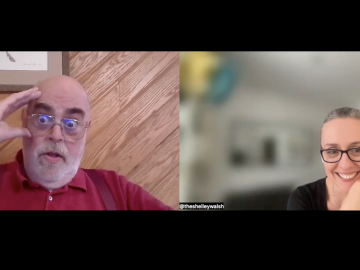U.S. presidential candidates Donald Trump and Kamala Harris have both suggested removing taxes on tips as part of their economic plans.
Service workers are typically some of the lowest paid and the idea is seen as a way to help out the working class.
However, many economists argue it is a bad idea because payroll taxes go toward things like Medicare and Social Security. Also, if employers know that workers are no longer legally required to pay federal income taxes on their tips, they may feel comfortable offering lower base wages, said a PBS analysis.
The change would likely only impact about 3 percent, or less, of the nation’s workforce. The National Restaurant Association is in favor of the plan, which argues tax relief for tipped workers would be “putting more money in their pockets at a time when we’re all feeling the squeeze of higher prices.”
Q: Should we remove taxes on service and hospitality tips?
Economists
James Hamilton, UC San Diego
NO: If we tax regular income but not tips, it creates an incentive to channel all compensation into the form of tips. That will lead us to new norms for payment that are cumbersome, inefficient and annoying. Call it what it is: a naked effort by the candidates to buy votes from favored groups with the bill picked up by everybody else. We should be trying to simplify the tax code and make it fairer instead of introducing a new class of special treatments.
Caroline Freund, UC San Diego School of Global Policy and Strategy
NO: Tips should not be treated preferentially. Removing taxes on tips would increase the already excessive pressure to tip and depress formal wages in the sector. It would also be discriminatory, favoring a few workers over others, and add yet another loophole to an already complex tax system. It is unfortunate that so many of the economic policies emanating from both sides of the aisle are designed for political sound bites and devoid of economic logic.
Kelly Cunningham, San Diego Institute for Economic Research
YES: Tipping is simply a means for customers to reward workers for good service. Providing it and amount given is voluntary. Government should not confiscate any portion, nor enforce an amount as income conferred. If employers depend on tipping for not paying workers enough compensation, they will lose their better employees and quality of services will diminish. It is ludicrous for the 2.5 percent of the workforce this affects to cause significant loss of government revenue.
Norm Miller, University of San Diego
NO: In the days when we carried cash, taxes were not always paid on tips, just as vendors of all sorts often “forgot” to report their cash sales. Today, it’s all reported. But this tax policy generates a quagmire of inequities and perverse incentives. Businesses will add tip revenue to sales of all sorts, at your grocery store for bagging help, at the theater for seating help, for child care centers and teachers, and where will it end?
David Ely, San Diego State University
NO: This would result in workers with the same level of income having very different tax obligations. Those receiving a large share of their income in the form of tips would owe less in taxes than those receiving just a base wage. Customers may tip less or employers may pay a lower base wage knowing that workers are no longer taxed on tips, so the proposal may fail to deliver the intended benefits.
Ray Major, economist
NO: The tipping culture is out of control. Clearly, tips are a form of wage income and should be treated as such. This is consistent with other W2 or 1099 wage earners. The root problem is that service industry workers are not paid properly and not taxing their tips doesn’t fix the problem. In fact, employers would be less likely to increase wages knowing that their service workers are not being taxed on their tips.
Alan Gin, University of San Diego
NO: Many tipped workers make so little that they don’t have to pay any taxes at all, so those workers would not get any benefit from the proposed policy. It would also create distortions in the labor market, as some service workers get tips while others don’t. Also, much of the benefit will go to tipped workers in high minimum wage states such as California as those workers are more likely to make enough to pay taxes.
Executives
Haney Hong, San Diego County Taxpayers Association
YES: If we also lower minimum wage requirements or reduce the standard deduction on these jobs. If the idea is to help some of our lowest paid neighbors move up the economic ladder, then let’s not pile on the policy interventions to achieve the same goals. Now since neither of my concurrent suggestions is likely, probably best then to just keep the taxes on tips.
Gary London, London Moeder Advisors
NO: The upward ascendance of tipping shifts the responsibility of compensation from employers to customers. Practically speaking, I doubt that most received tips are reported to the IRS anyway, so this is a proposal with little impact to workers getting tips or the nation’s fiscal well-being. Travelers to Europe or South America are pleasantly relieved that the tipping conundrum is not present in those societies, as costs of dining include server gratuities. It’s a better, fairer way.
Phil Blair, Manpower
NO: I am very concerned when government becomes selective, due to political or union pressure, to give preferential treatment to one employment group and not others. There is not a logical reason for employees who receive tips to be excluded from taxes. If the national minimum wage is not sufficient to accomplish its goals then it should be raised for all low-paid workers.
Bob Rauch, R.A. Rauch & Associates
NO: It makes no sense. The budget deficit is big enough and this would increase it as tips are now subject to payroll taxes. It would also create an unfair imbalance between tipped employees who are delivery workers, say pizza, and those delivering for Amazon, generally untipped. Most low-wage workers in America would not benefit as tipped workers make up about 3 percent of employment. Lastly, it is strictly a political issue now. Foolish law.
Austin Neudecker, Weave Growth
NO: If you feel the tipping culture is out of hand today, these proposals will only exacerbate the problem. Whenever we construct substantial tax incentives, people strive to take advantage by reclassifying their compensation. I expect traditional service industries to exploit the policy to stagnate wages and new industries to ask for payment in the form of tips. We should transition away from tips toward transparent prices and fair minimum wages for all, regardless of industry.
Chris Van Gorder, Scripps Health
NO: My heart goes out to the great servers I have had over the years at many restaurants, and I like to support not taxing tips, but it’s easy to make promises during election campaigns that are poorly researched. This would be a slippery slope that could be taken advantage of by some employers. There also would be an impact on payroll taxes that support Medicare, which is already threatened by underfunding.
Jamie Moraga, Franklin Revere
YES: But with reservations. I am all for reducing taxes and putting more money in the pockets of consumers. I also like to see rare bipartisan support for a particular initiative. The devil here will be in the details. No tax on tips is a nice campaign slogan that targets a specific voting group in a key battleground state. If passed, the difficulty will be logistics,implementation, and mitigation of any potential unintended consequences.
Have an idea for an Econometer question? Email me at phillip.molnar@sduniontribune.com. Follow me on Threads: @phillip020
Originally Published: September 12, 2024 at 11:24 a.m.





